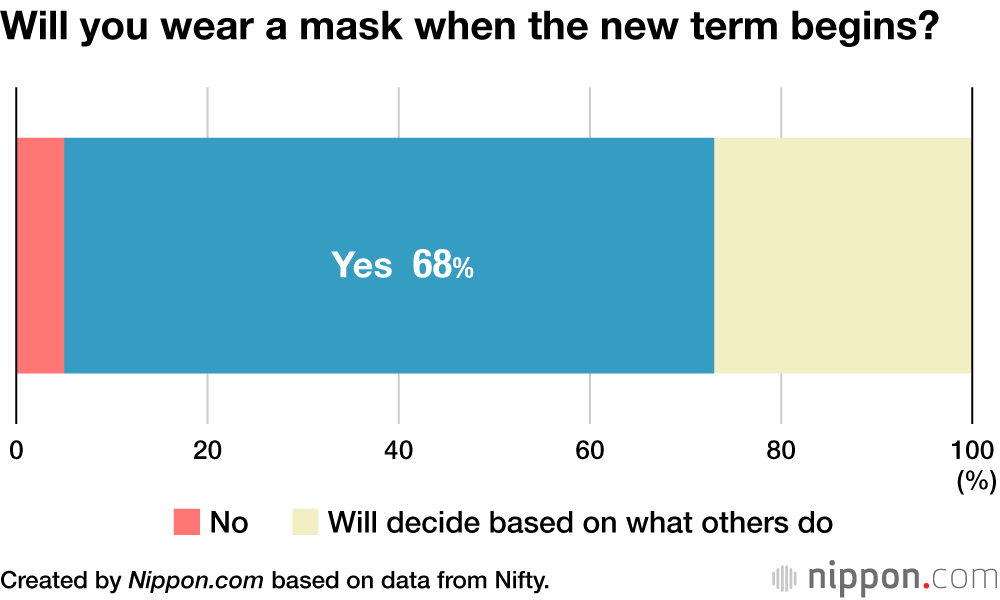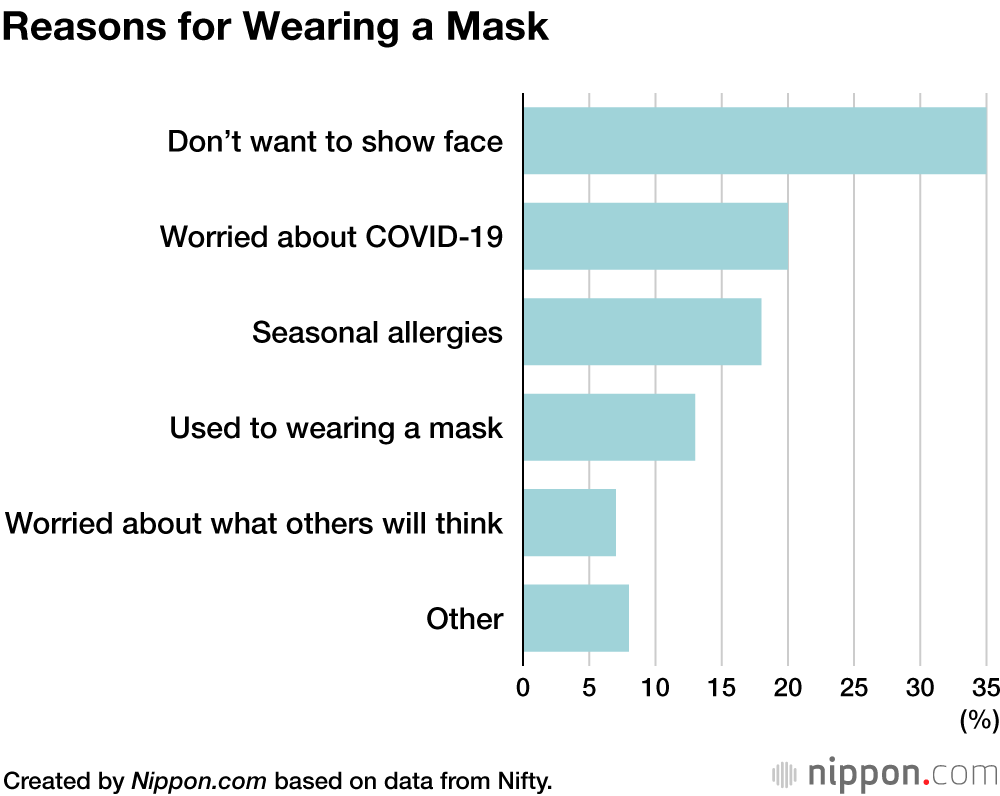When the Japanese academic year started last month, students were no longer required to wear masks at school. But when 1328 Japanese kids were asked whether they’d still keep masking from the beginning of the new school year, they inevitably gave depressing responses.
Even more depressing were the reasons for saying “Yes”.
A teacher at a high school in Osaka described the situation during the first month of optional masking.
We put up posters in the classrooms and hallways telling people that we’re not asking them to wear masks in the school, but only about 10% of the students have taken their masks off. Some students even wore masks during a photo shoot. Students were completely masked for all three years of junior-high school. You feel the pressure to conform, and it’s probably difficult for them to suddenly unmask.
The clearest evidence of the mental toll that living in faceless society has had on Japanese children is the increase in suicides of school students, which reached a record high in 2020 and surpassed it in 2022.
So how can adults get kids to start showing their faces again? A magazine called Ovo ran an article in which the mother of a 9-year-old boy and 6-year-old girl asked how she could persuade her kids to unmask at school. The kids’ reasons for continued masking are “I’m embarrassed to have people look at my face” and “Everyone else is masking and I doubt want to stand out”. In other words, pointing to RCT data isn’t going to cut it.
The below advice comes from former school head master Kazuo Takeshita. I quote it at length because 1) I think it accurately describes how young Japanese children have experienced and been affected by Japan’s Covid craziness and 2) it doesn’t insist that masks have any benefit, unlike almost all other Japanese media articles about masks. All highlights are my own.
The Corona Crisis is at last calming down. But what about the state of mind of people living in the shadow it has cast on society, life, and the economy? It is a negative image of fear, anxiety, sadness, inconvenience, loneliness, injustice, dissatisfaction, anger, despair, frustration, anguish, anger, impatience, and depression. Moreover, interaction with the people around us has been restricted, and people have spent many days shut in.
The fact that the number of suicides among high school students and younger has increased during the COVID-19 pandemic is proof that it is difficult for adolescents and prepubescent children to live under the "new lifestyle." Adults should be able to return to their pre-Corona lifestyles once things calm down, but prepubescent children feel troubled because they don't have anything to return to.
To return to the pre-Corona situation, your son and daughter would have to return to the lifestyles they had when they were 6 and 3, but at their ages, they’re unable to recall that.
Until around the age of 7, the ability to think and make judgments hasn’t been developed, so children acquire the ability to adapt to society through imitation. This isn’t a choice, but an uncritical and superficial “imitation”.
Between the ages of 7 and 14, children begin to choose who to imitate. It's a time to listen to and put into practice the words of people you like, people you admire, people you respect, and people you trust, and build your character. Therefore, it is better to avoid environments filled with negative images and to intentionally increase the number of environments filled with positive images of hope, comfort, friendship, solidarity, security, freedom, joy, and smiles. If you want your children to take off their masks, you should take yours off and show yourself living comfortably.
Even if you go to school to ask them to tell students to take off their masks, you will probably only hear the phrase from the Ministry of Education, Culture, Sports, Science and Technology (MEXT): "People shouldn’t be forced to wear or take off masks." Parents have their own circumstances, and there may be some who have not raised their voices but wish schools would continue to enforce mask-wearing for a while longer.
It's important to make children realize that friends can understand each others’ feelings better without masks. Try saying to your two children, "Maybe it's better to take off your masks to let people know how you're feeling." It’s good if parents they get along well with just gently push them, not force them (to unmask). Say that if you unmask, your head will be clearer, your feelings will be brighter, your energy will rise, and you will be able to live happily.
Before the pandemic, children wore masks only when sick. For children now, a mask is the symbol of the time when sports days and cultural festivals could not be held, and school trips had to be canceled. From May 8th, the Covid-19 will be classified as a Category 5 infectious disease, so even if you are infected, you will not be legally required to stay at home or be quarantined, and headlines like "school trips are canceled nationwide" won’t be seen.
If you are irritated by children who can't easily remove their masks, you will generate a negative image of unmasking. From now on, let's create as positive an image as possible.
It may seem bizarre to people outside Japan that parents now need to tell their children it’s better to breathe properly and show their faces, but that’s the hole the Japanese public have dug themselves into due to their credulity and conformity.
And the problem is that even if they manage to climb out of the hole, they’ll start digging again as soon as the government and media tell them to. And that’s most likely a case of “when”, not “if”.








It’s done. There is no coming back from that. They won’t recover.
My kids are not masked because I’ve played my role as a father : my wife had no say regarding masks and the vaccine. Too many fathers are too weak, here and abroad.
Most of the kids lied on this. The number one reason is not that they don't want to show their faces but that they are afraid of what others think. Am I wrong? I don't think so. "The nail that sticks out will get hammered down." A cultural expression masking as a lack of testicular fortitude.